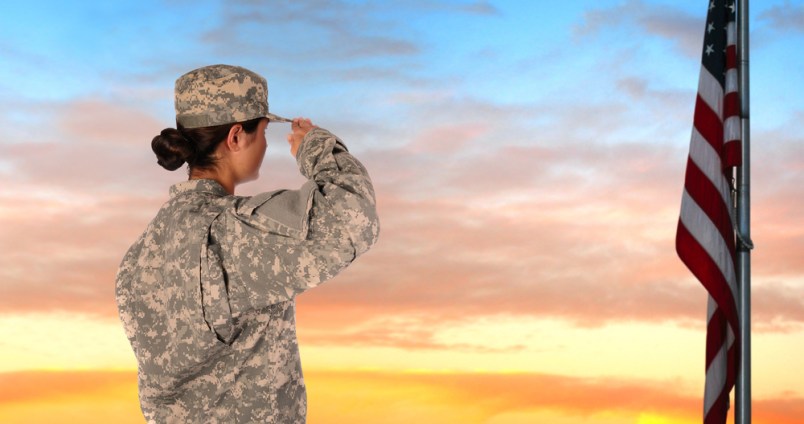Overall I think Politico has been doing a really good job of tracking congressional efforts to curb sexual assault in the military, reporting on it even as attention turned to other issues like Syria and pointing out that the military has been dragging its feet on any accountability of this issue for decades.
But man, this story today makes me lose my faith. It includes sentences like this:
Even as the problem of military sexual assault has gotten more attention, there’s been no drop-off in women signing up to serve. In fact, all four branches of the military say they’ve hit their recruitment marks in recent years, with the number of enlisted women holding steady at roughly 15 percent.
Let’s try not to express astonishment at women entering the military despite sexual assault statistics. There are many problems with this framing, but here are just a few:
1) Here’s the really depressing thing: Women — whether in the military or not — face some risk of being victims of sexual assault in almost every aspect of their lives. In fact, approximately one in four women report having experienced an assault or attempted assault in their lifetimes, many of them by the time they turn 25. Women can experience sexual assault in many “normal” parts of everyday life: Walking home at night (about 16 percent of assaults come from strangers), going out on dates (about 57 percent of rapes occur this way), going out to parties with friends (55 percent reported a rape in association with drinking or using drugs), hanging out with someone they know well (more than 80 percent of rapes are perpetrated by a known assailant) and entering into a relationship with a man who may abuse and/or end up raping her (nearly 25 percent of women report intimate partner violence). And yet, women still walk home at night, enter into relationships, go out socially or form friendships with men every single day. How strange!
2) Few people really believe that sexual assault will happen to them — until it does. I doubt many women are sitting before the contract they are about to sign with a given branch of the U.S. military thinking about whether or not they will be raped during their time in service. And even if they did, the ultimate chances are relatively small. In a 2012 survey, about 6 percent of women in the military reported that they experienced unwanted sexual contact. That’s not to say we shouldn’t do more to mitigate sexual assault in the military — more than half of victims of assault say they fear reporting it due to intimidation and retaliation — but women who signup may not necessarily view the military as filled with sexual predators. Many women join because they want to serve their country, because they have a strong desire to work in the military, or because they view the education and economic benefits as important to their long-term survival. Since many recruits come from poor parts of America, chances are enlistees view the military as one of the few opportunities they have at a middle-class life.
3) This report basically ignores male victims of sexual assault in the military. Men are, statistically speaking, actually the majority (53 percent) of sexual assault victims — assault on men occurs at lower rates, but there are just more men in the military, which is why they make up the majority of victims. The story could very well have asked why men continue to sign up for the military despite their chances of becoming victims of sexual assault, which would have been equally problematic, for the reasons above.
4) Ultimately framing the story has a subtext that women are the ones who should exercise caution when it comes to sexual assault — rather than focusing on potential offenders. An alternate framing of the story with this in mind could have been, “Recruiting Numbers Stay Steady Despite Risk Of Men Becoming Rapists.”
Higher ups in the military might find it useful to say that military sexual assault is hurting recruitment as means of motivating others to do something about sexual assault, but the truth is the military hasn’t seen recruitment among women drop. Those numbers aren’t increasing for a combination of reasons, including that women may see economic opportunities elsewhere (though I’m sure that increased risk of sexual assault doesn’t help).
It’s important to point out that addressing this problem isn’t important for recruitment. It’s important to address military sexual assault because it’s the right thing to do.
—
“Stock Photo: Closeup Of An American Female Soldier In Combat Uniform Saluting A Flag At Sunset.” on Shutterstock






